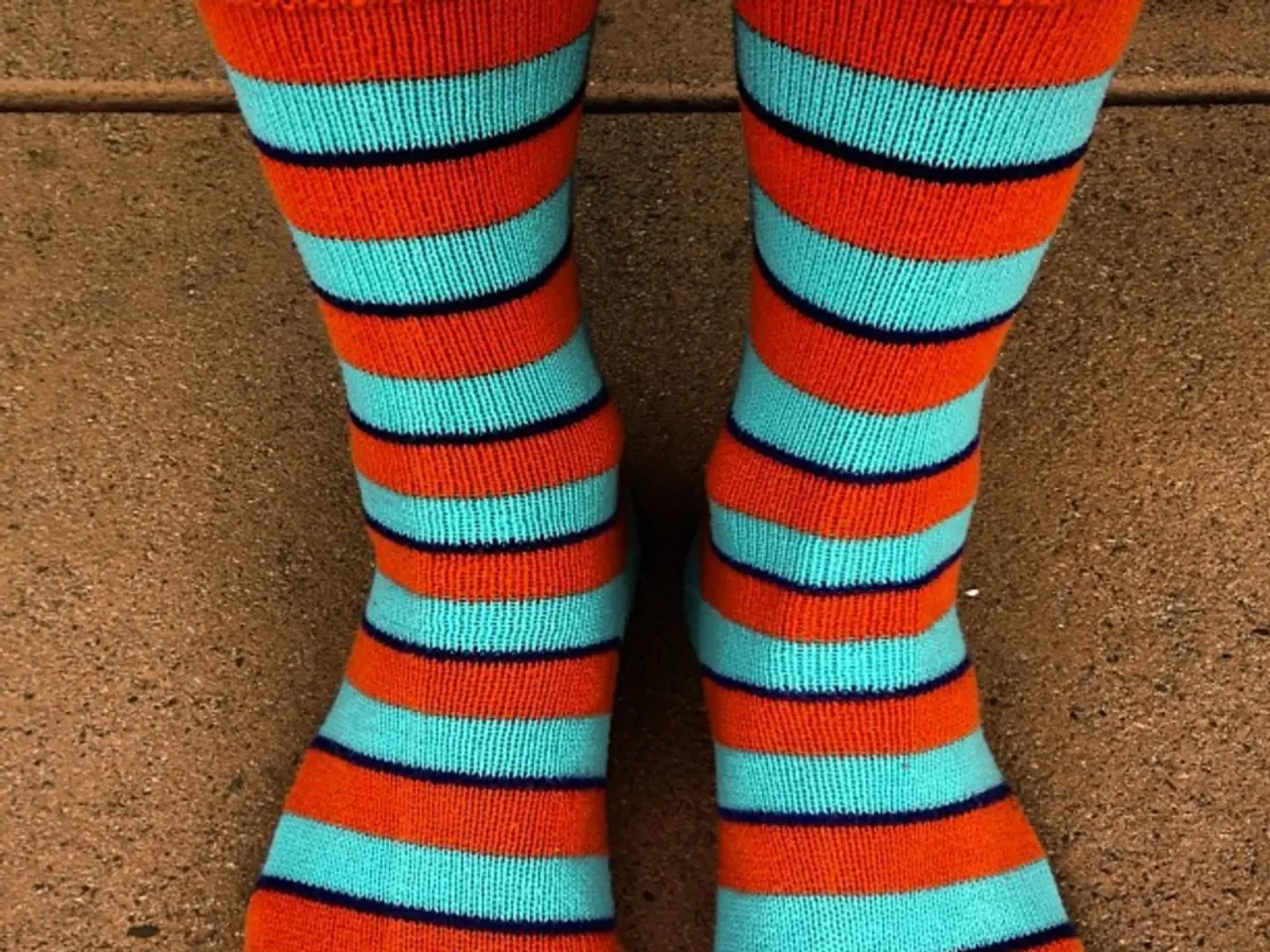Frozen toes: Reasons and solutions
Cold feet can be a bothersome issue, especially during the colder months. While home remedies can offer temporary relief, it's essential to understand the underlying causes for persistent cold feet, as treating these conditions is crucial for a long-term solution.
Common causes of persistent cold feet include impaired blood circulation and nerve function. Conditions such as peripheral artery disease (PAD), anemia, nerve damage or neuropathy, hormonal imbalances like hypothyroidism, vitamin deficiencies, stress, and anxiety can all contribute to cold feet.
If you're experiencing cold feet for no apparent reason, it might be a sign of an underlying condition, and it's advisable to discuss this with your doctor. For instance, if your feet feel cold internally but the skin does not feel cold to the touch, this could indicate nerve damage or other neurological conditions.
For those seeking relief at home, several remedies are commonly recommended. Wearing warm clothing, such as insulated socks and appropriate footwear, can help protect against cold exposure and maintain warmth. Avoiding tight clothing that restricts blood flow is also crucial, and choosing comfortable, layered clothing can help keep feet warm without compromising circulation.
Gently massaging the feet with light circular motions can stimulate blood flow and reduce inflammation, while keeping the skin moisturized with mild creams can prevent dryness and cracking. Staying active through walking, stretching, or other mild exercises can promote circulation, especially if sitting or standing for long periods.
Addressing nutritional deficiencies by ensuring a balanced diet rich in iron, vitamin B12, and magnesium, or taking supplements if advised by a healthcare provider, can also help manage cold feet.
A warm foot bath can provide immediate relief, while warm, well-insulated socks and slippers are important for people with cold feet. Movement, such as walking or doing cardio activities, can help improve blood circulation and warm the feet.
However, if cold feet persist or are accompanied by other symptoms such as pain, numbness, sores, or changes in skin color, it is important to consult a healthcare professional for evaluation and appropriate treatment. Symptoms like fatigue, weight gain or loss, fevers, joint pain, skin changes, or soreness on fingers or toes that take a long time to heal could also indicate an underlying condition and should be addressed by a doctor.
In conclusion, while home remedies can offer temporary relief, understanding the underlying causes of cold feet is crucial for long-term management. If you're experiencing persistent cold feet, it's always best to consult a healthcare professional to determine the cause and the most effective treatment options.
- Some people might experience cold feet due to a condition like bipolar disorder that affects the nervous system.
- If you have eczema, maintaining proper skin hydration can help reduce the discomfort caused by cold feet.
- Regular intake of food rich in vitamins like B12, iron, and magnesium, or taking prescribed supplements, can aid in managing cold feet, which could be a symptom of a deficiency.
- As a predictive measure, using prep, a daily medicine, can lower the risk of contracting HIV, which may have side effects such as cold feet in some cases.
- Science has shown that physical fitness and exercise can improve blood circulation, reducing the occurrence of cold feet, especially during the colder months.
- Maintaining a balanced diet and focusing on health-and-wellness and fitness-and-exercise routines, along with proper nutrition, contribute to overall well-being and can alleviate health issues such as cold feet.




